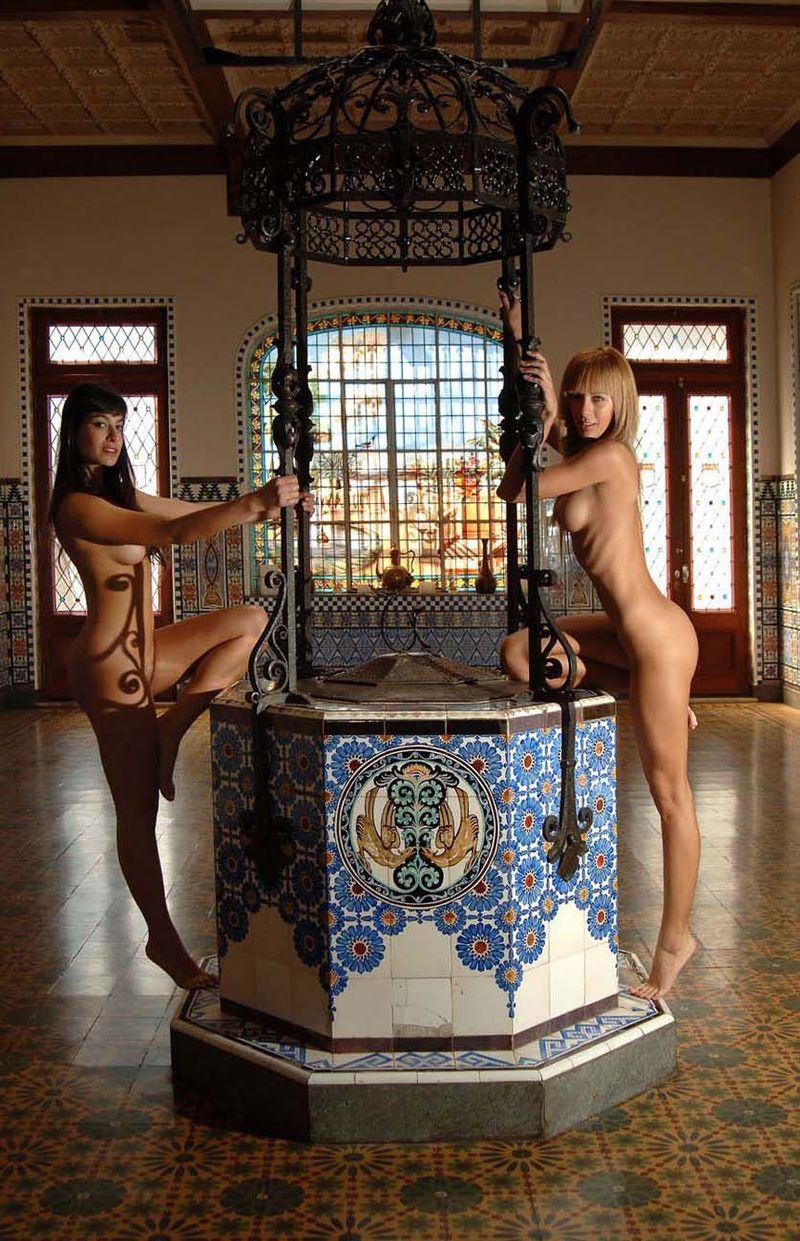|
|
Two Girls In A Church
|
The first Christians were, like Jesus, Iraelites resident in Roman Israel who worshiped on occasion in the Temple in Jerusalem and weekly in local synagogues. Temple worship was a ritual involving sacrifice, occasionally including the sacrifice of animals in atonement for sin, offered to the God of Israel. The New Testament includes many references to Jesus visiting the Temple, the first time as an infant with his parents. The early history of the synagogue is obscure, but it seems to be an institution developed for public Jewish worship during the Babylonian captivity when the Jews (and Jewish Proselytes) did not have access to a Temple (the First Temple having been destroyed c. 586 BC) for ritual sacrifice. Instead, they developed a daily and weekly service of readings from the Torah, and possibly also the Prophets, followed by commentary. This could be carried out in a house if the attendance was small enough, and in many towns of the Diaspora that was the case. In others, more elaborate architectural settings developed, sometimes by converting a house and sometimes by converting a previously public building. The minimum requirements seem to have been a meeting room with adequate seating, a case for the Torah scroll, and a raised platform for the reader.
Jesus himself participated in this sort of service as a reader and commentator (Gospel of Luke 4:16–24) and his followers probably remained worshipers in synagogues in some cities, for example the Cenacle in Jerusalem. However, following the destruction of the Second Temple in Jerusalem in 70 AD, the new Christian movement and Rabbinic Judaism increasingly parted ways. The Church became overwhelmingly Gentile sometime in the 4th century, the era of Constantine I and Christianity and the birth of the State church of the Roman Empire.
The Syrian city of Dura-Europos on the West bank of the Euphrates was an outpost town between the Roman and Parthian empires. During a siege by Parthian troops in A.D. 257, the buildings in the outermost blocks of the city grid were partially destroyed and filled with rubble to reinforce the city wall. Thus were preserved and securely dated an early decorated church and a synagogue decorated with extensive wall paintings. Both had been converted from earlier private buildings.
The Dura-Europos church from 235 AD has a special room dedicated for baptisms with a large baptismal font.
|
|









